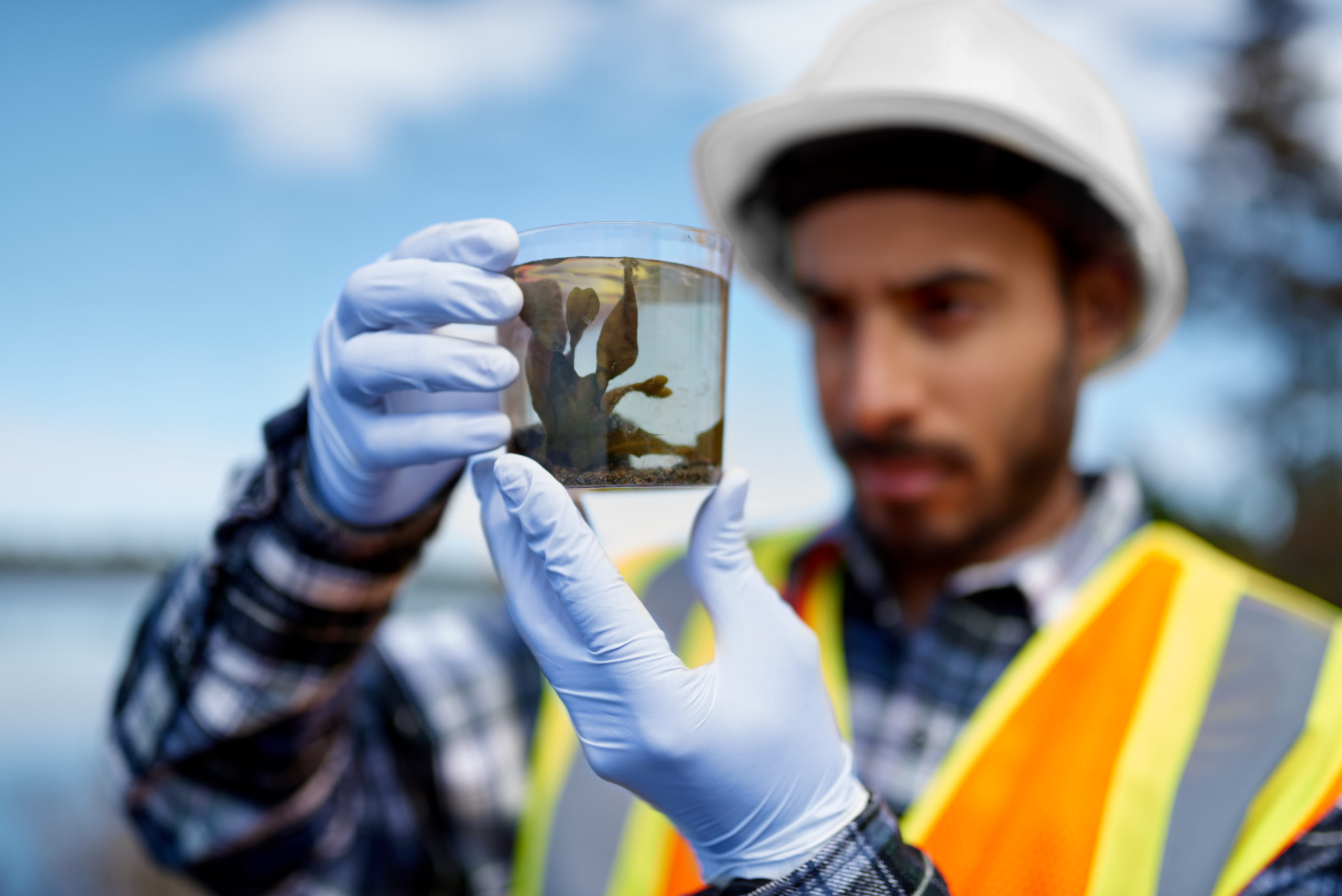Marine Science

Marine science covers a varied number of fields. Marine science also requires knowledge in areas such as biology, geology, and oceanography. Marine Science puts emphasis on harnessing the power and produce of the ocean in an effort to benefit society. Marine science concentrates on how humans interact with the sea. This means as a source of food or energy, as a means of communication or transport, and as an industrial raw material or tool. The abuse of the marine environment has had many consequences. As a result, marine scientists design and implement more environmentally friendly policies and practices.
Qualifications in Marine Science lead to a wide range of careers including scientific research, manufacturing, industry, government policy formation, tourism, and aquaculture.
Education
To work as a marine scientist, you need a higher-level qualification in a related area. There are a number of different courses available through the CAO system. There are options at honours degree, ordinary degree and higher certificate levels.
Course include Marine Science, Aquatic Science and Applied Freshwater & Marine Biology. First-year Marine Science students study a broad range of science subjects, including Biology, Chemistry and Physics, as well as subjects concerning the origin and structure of the earth and the oceans.
Specialisation is introduced as you progress, and involves subjects such as Earth & Ocean Sciences, Oceanography, Marine Zoology, Geophysics, Hydrogeology, Marine Ecology, Botany, Geology, and Advanced Marine & Environmental Science. It may also be possible to take subjects in areas such as Environmental Protection, Marine Business, and Tourism. Some other science degrees offer Marine Science as an option for specialisation.
Options After Qualification
You might think that marine science is a fairly specialized area, but there are many different career options for people with a higher-level qualification in the area. Graduates can find themselves working in sectors including oceanography, mineral exploration, fish breeding, water quality control, marine meteorology, coastal management, marine park or oceanarium management, tourism, environmental planning, conservation, and teaching. Many marine Science graduates also go on to study postgraduate courses, concentrating on a particular area (such as hydrogeology, geophysics, or oceanography). After graduating, they tailor their careers to their chosen areas or enter full-time specialist research.
The Work
A typical day for a marine scientist will obviously depend on the industry you choose, but scientific research is sure to be on the agenda. Possible research tasks include catching fish to conduct tests, measuring pollution levels, and testing renewable wave energy generators. Some marine scientists work for government bodies, while private companies employ others. There are a number of other careers closely related to marine science. Fish farmers can utilise marine science knowledge. Oceanographers explore and map the ocean floor. Marine geologists offer advice to multinational energy companies planning to drill for oil or gas in a particular underwater area. Marine biologists study and preserve declining species of fish or plant life.
Personal Qualities & Work Environment
Those with a head for science and an interest in the environment and the sea are usually well suited to the study of marine science. An organised and methodical mind is beneficial, as is a talent with figures. Enjoying time on boats, and working with crews are also vital qualities to be in possession of. Many marine science jobs involve a combination of time at sea making observations and collecting data, and time spent in the lab or office analysing your findings. Marine science jobs can involve plenty of travel and time spent away from home, especially if you live somewhere landlocked.
The Jargon
Red Tide: A discoloration of the sea caused by an outbreak of toxic red dinoflagellates (look it up!)
Zoophyte: A plantlike animal, e. g. a coral, sea anemone, or sponge
Draught: The depth of water needed to float a ship
Oceanography: Another word for marine science; literally meaning the study of the earth’s oceans
harnessing the power and produce of the ocean in an effort to benefit society. Marine science concentrates on how humans interact with the sea. This means as a source of food or energy, as a means of communication or transport, and as an industrial raw material or tool. The abuse of the marine environment has had many consequences. As a result, marine scientists design and implement more environmentally friendly policies and practices.
Qualifications in Marine Science lead to a wide range of careers including scientific research, manufacturing, industry, government policy formation, tourism, and aquaculture.
Education
To work as a marine scientist, you need a higher-level qualification in a related area. There are a number of different courses available through the CAO system. There are options at honours degree, ordinary degree and higher certificate levels.
Course include Marine Science, Aquatic Science and Applied Freshwater & Marine Biology. First-year Marine Science students study a broad range of science subjects, including Biology, Chemistry and Physics, as well as subjects concerning the origin and structure of the earth and the oceans.
Specialisation is introduced as you progress, and involves subjects such as Earth & Ocean Sciences, Oceanography, Marine Zoology, Geophysics, Hydrogeology, Marine Ecology, Botany, Geology, and Advanced Marine & Environmental Science. It may also be possible to take subjects in areas such as Environmental Protection, Marine Business, and Tourism. Some other science degrees offer Marine Science as an option for specialisation.
Options After Qualification
You might think that marine science is a fairly specialized area, but there are many different career options for people with a higher-level qualification in the area. Graduates can find themselves working in sectors including oceanography, mineral exploration, fish breeding, water quality control, marine meteorology, coastal management, marine park or oceanarium management, tourism, environmental planning, conservation, and teaching. Many marine Science graduates also go on to study postgraduate courses, concentrating on a particular area (such as hydrogeology, geophysics, or oceanography). After graduating, they tailor their careers to their chosen areas or enter full-time specialist research.
The Work
A typical day for a marine scientist will obviously depend on the industry you choose, but scientific research is sure to be on the agenda. Possible research tasks include catching fish to conduct tests, measuring pollution levels, and testing renewable wave energy generators. Some marine scientists work for government bodies, while private companies employ others. There are a number of other careers closely related to marine science. Fish farmers can utilise marine science knowledge. Oceanographers explore and map the ocean floor. Marine geologists offer advice to multinational energy companies planning to drill for oil or gas in a particular underwater area. Marine biologists study and preserve declining species of fish or plant life.
Personal Qualities & Work Environment
Those with a head for science and an interest in the environment and the sea are usually well suited to the study of marine science. An organised and methodical mind is beneficial, as is a talent with figures. Enjoying time on boats, and working with crews are also vital qualities to be in possession of. Many marine science jobs involve a combination of time at sea making observations and collecting data, and time spent in the lab or office analysing your findings. Marine science jobs can involve plenty of travel and time spent away from home, especially if you live somewhere landlocked.
The Jargon
Red Tide: A discoloration of the sea caused by an outbreak of toxic red dinoflagellates (look it up!)
Zoophyte: A plantlike animal, e. g. a coral, sea anemone, or sponge
Draught: The depth of water needed to float a ship
Oceanography: Another word for marine science; literally meaning the study of the earth’s oceans


Leave a comment